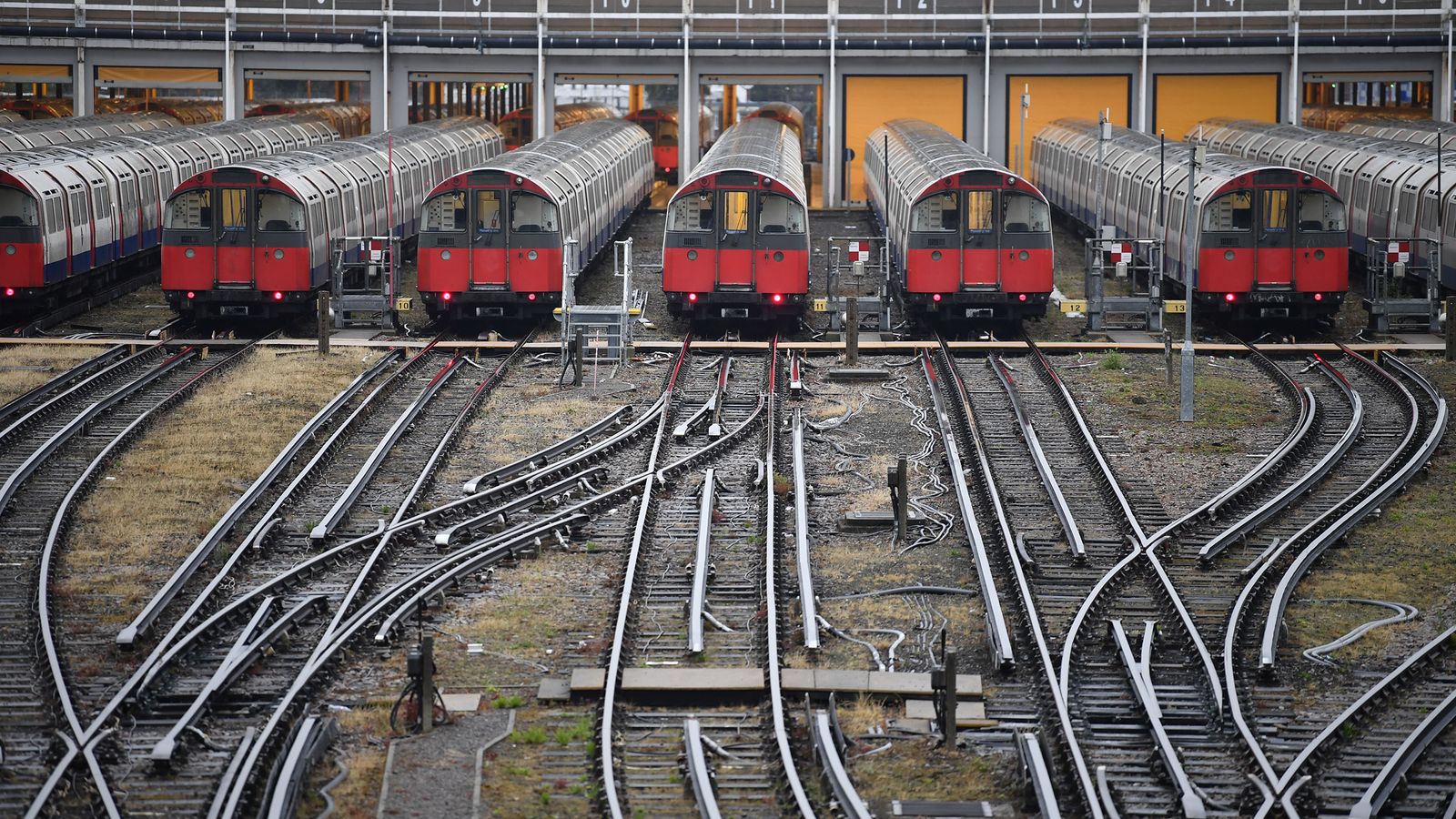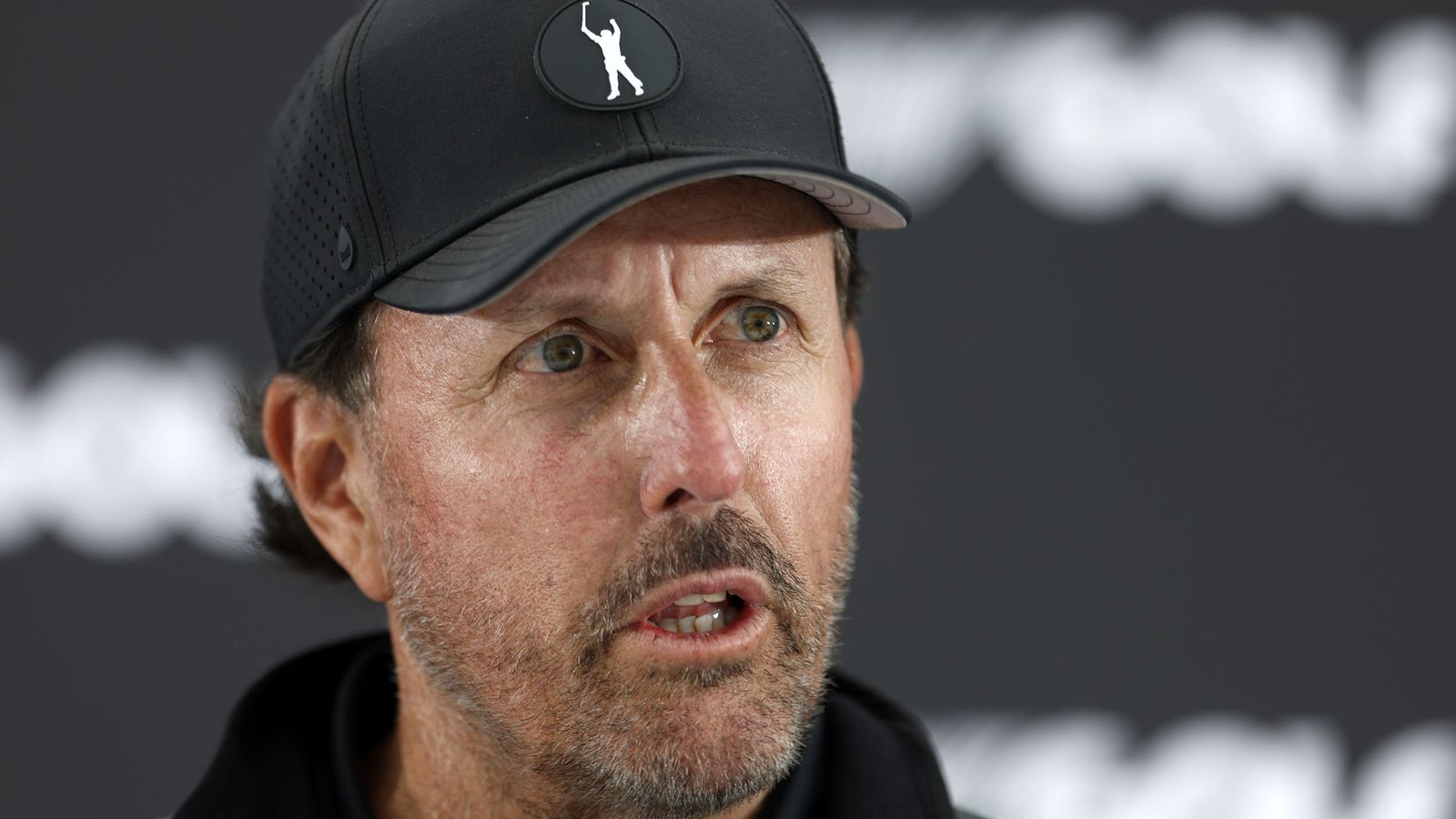Talks are to be held and a contingency plan drawn up in a bid to avert the biggest rail strike in more than three decades.
Railway workers will strike for three days later this month threatening travel chaos for commuters and those heading to major events including the Glastonbury festival.
The RMT union said that up to 50,000 of its members across Network Rail, 13 train operators and on London Underground would walk out on 21 June in the “biggest outbreak of industrial action in the UK since 1989”.
The disputes are over jobs, pay and pensions with the union complaining that railway staff, who worked throughout the pandemic, are facing job cuts, a pay freeze and an attack on employment conditions.
Talks between Network Rail (NR) and the union are expected to be held in the next few days, sources told the PA news agency.
NR is also drawing up contingency plans, with the strikes expected to cause disruption to services for six days, from the first walkout on Tuesday 21 June to the day after the third strike.
Fewer than one in five trains are likely to run, and only between 7am and 7pm, probably only on main lines.
Cost of living latest: Biggest daily rise in petrol price in 17 years – as other supermarkets set to follow ‘unheard of’ 5p hike by Asda
Boris Johnson blames wounding confidence vote on ‘political opponents’ upset as govt does ‘big remarkable things’
Collin Reeves: Ex-soldier stabbed married couple to death with ceremonial dagger in parking space row, court told
No direct talks are planned between the union and train operators, although the RMT said it is open to “meaningful negotiations” to try to resolve the dispute.
Among the events that could be affected are Test match cricket, gigs in London’s Hyde Park by Sir Elton John and The Rolling Stones and a Commonwealth Heads of Government meeting in London.
Union plans to ‘shut down the railway system’
RMT general secretary Mick Lynch said: “Railway workers have been treated appallingly and, despite our best efforts in negotiations, the rail industry, with the support of the Government, has failed to take their concerns seriously.
“We have a cost-of-living crisis, and it is unacceptable for railway workers to either lose their jobs or face another year of a pay freeze when inflation is at 11.1% and rising.
“Our union will now embark on a sustained campaign of industrial action which will shut down the railway system.”
Network Rail chief executive Andrew Haines said the organisation is “doing everything we can” to avoid the strike action.
“There are two weeks until the first strike is planned. We will use this time to keep talking to our unions and, through compromise and common sense on both sides, we hope to find a solution and avoid the damage that strike action would cause all involved,” he said.
Rail Delivery Group chairman Steve Montgomery said the strikes are “needless and damaging”.
‘Act like adults’ – London Mayor and government point finger at each other
Health Secretary Sajid Javid said union leaders should “act like adults” and come to a “sensible solution” to the disputes.
A spokesman for London Mayor Sadiq Khan said: “At the heart of this industrial action is the Government’s appalling approach to public transport across the country, not least its continued resistance to delivering the sustainable funding Transport for London (TfL) desperately needs.
“These planned strikes are extremely frustrating and disappointing and will have a serious impact on London’s businesses and commuters right at the time when we’re working to get more passengers back on to the network, encourage tourists back to London, and support the capital’s economic recovery.
“In London, TfL has made clear that nobody has or will lose their jobs, and there are no proposed changes to pensions. That’s why the Mayor urges the RMT to call off this action and to work with TfL to find a resolution.
“He also urges the train operating companies, trade unions and the government to work together to resolve the national dispute, to protect London’s economic recovery.”
However, a Department for Transport spokesman said it was “disappointing and unfair” for Mr Khan to blame the government.
They said: “After all our collaborative work over the past few weeks on the Elizabeth line, it is disappointing and unfair of the Mayor to put the blame for these strikes on the Government rather than take responsibility and fulfil his promise of making TfL financially stable – especially as it was his own advisory panel who recommended pension reform.
“We’ve provided TfL with close to £5 billion during the pandemic and committed to exploring a long-term settlement to further support London’s transport network all while the Mayor buries his head in the sand and continues to push for more bailouts.”









